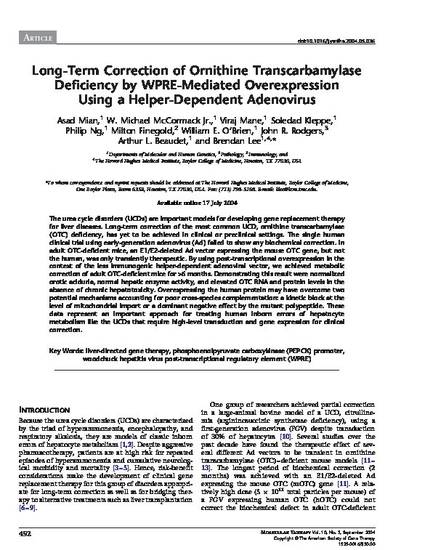
The urea cycle disorders (UCDs) are important models for developing gene replacement therapy for liver diseases. Long-term correction of the most common UCD, ornithine transcarbamylase (OTC) deficiency, has yet to be achieved in clinical or preclinical settings. The single human clinical trial using early-generation adenovirus (Ad) failed to show any biochemical correction. In adult OTC-deficient mice, an E1/E2-deleted Ad vector expressing the mouse OTC gene, but not the human, was only transiently therapeutic. By using post-transcriptional overexpression in the context of the less immunogenic helper-dependent adenoviral vector, we achieved metabolic correction of adult OTC-deficient mice for >6 months. Demonstrating this result were normalized orotic aciduria, normal hepatic enzyme activity, and elevated OTC RNA and protein levels in the absence of chronic hepatotoxicity. Overexpressing the human protein may have overcome two potential mechanisms accounting for poor cross-species complementation: a kinetic block at the level of mitochondrial import or a dominant negative effect by the mutant polypeptide. These data represent an important approach for treating human inborn errors of hepatocyte metabolism like the UCDs that require high-level transduction and gene expression for clinical correction.
Available at: http://works.bepress.com/asad_mian/16/

This work was published before the author joined Aga Khan University.